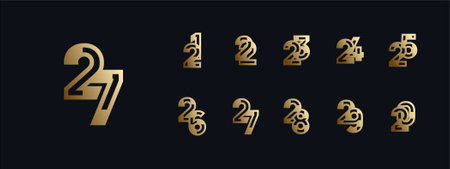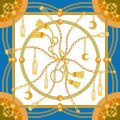Astrology’s Roots in Medieval Britain
In medieval Britain, astrology was deeply woven into the fabric of daily life and held a position of remarkable respectability. Far from being dismissed as mere superstition, astrology was integrated with both religious doctrine and medical practice. The Church, while sometimes wary of its potential to conflict with Christian teachings, often tolerated or even encouraged astrological study when it was framed within an understanding of God’s grand design. Learned clergy and monks were among the first to translate, preserve, and expand upon classical astrological texts, especially those inherited from Arabic scholars.
Moreover, astrology played a practical role in medicine, underpinning the diagnosis and treatment of illnesses through the doctrine of ‘medical astrology’ or iatromathematics. Physicians relied on the stars to determine auspicious times for procedures like bloodletting and to understand patients’ temperaments. This close relationship between astrology and medicine meant that universities such as Oxford and Cambridge included astrological teachings as part of their curriculum.
Amongst the intellectual elite, astrology was viewed as a serious science worthy of scholarly pursuit. It was considered part of the quadrivium—the advanced curriculum which also included arithmetic, geometry, and music. Astrologers frequently served at royal courts, advising monarchs on matters ranging from warfare to agriculture based on celestial observations. Thus, in medieval Britain, astrology enjoyed a status that straddled both academic inquiry and practical utility.
Renaissance and the Shifting Sands
The Renaissance period in Britain, spanning roughly from the late 15th to the early 17th centuries, marked a profound transformation in the cultural and intellectual climate. This era witnessed not only a revival of classical learning but also the dawn of critical inquiry and scientific exploration. Astrology, which had enjoyed considerable prestige during the Middle Ages, found its reputation caught in a complex web of evolving beliefs and emerging disciplines.
During the Renaissance, astrology was still widely practiced and respected among both scholars and the general public. Notable figures such as John Dee acted as royal advisors, blending astrological predictions with mathematics and navigation. However, this period also saw an increasing scepticism towards astrology as science began to carve out its own identity. The rise of empirical methods and rational thought—epitomised by figures like Francis Bacon—posed new questions about astrology’s validity.
Shifting Academic Attitudes
| Aspect | Middle Ages | Renaissance |
|---|---|---|
| Institutional Support | Strong; taught at universities | Diminishing; questioned by some scholars |
| Integration with Science | Seen as part of natural philosophy | Began to separate from emerging sciences |
| Public Perception | Respected and influential | Mixed; both fascination and growing doubt |
The Impact of Scientific Thinking
The movement towards scientific reasoning challenged astrology’s foundational principles. While many Renaissance intellectuals continued to consult horoscopes, there was a noticeable shift towards evidence-based investigation. Astronomy, for example, emerged as a distinct discipline, drawing clear lines between the observable movements of celestial bodies and their supposed influence on human affairs.
Cultural Contradictions
This period is best understood as an age of contradiction: while astrological almanacs remained popular among the public, academic circles grew increasingly critical. The allure of astrology persisted in British society, but its status was no longer unassailable. The seeds of scientific revolution sown during the Renaissance would eventually lead to further challenges for astrology in the centuries ahead.
![]()
3. Astrology Under Scrutiny: The Enlightenment
The Enlightenment period, spanning the late seventeenth to eighteenth centuries, marked a crucial turning point for astrology’s reputation in British society. As rational inquiry and scientific empiricism gained ground, astrology increasingly found itself under intense scrutiny from intellectuals and the public alike.
Scepticism Takes Root
Philosophers and scientists of the Enlightenment such as Isaac Newton, David Hume, and others championed the virtues of logic, observation, and evidence-based reasoning. These figures questioned long-standing beliefs that lacked empirical support, placing astrology in direct opposition to the emerging scientific method. While astrology had previously coexisted with other scholarly pursuits, it now came to be seen by many as a relic of superstition rather than a legitimate field of study.
Public Debate and Satire
The British press and satirical writers also played a significant role in shaping public opinion about astrology during this era. Pamphlets, periodicals, and cartoons lampooned astrologers and their predictions, often portraying them as charlatans or figures of ridicule. This shift in public discourse contributed to a growing divide between popular belief and elite intellectual consensus.
Marginalisation from Academia
As universities and learned societies began to formalise scientific disciplines, astrology was gradually excluded from academic circles. Astronomy, once closely linked with astrology, distanced itself to establish credibility as a rigorous science. This marginalisation relegated astrology to the fringes of respectable knowledge in Britain, though it continued to persist among certain segments of society.
Legacy of Enlightenment Scepticism
The critical perspective established during the Enlightenment had a lasting impact on how astrology was perceived in British culture. While outright belief did not vanish overnight, the association of astrology with irrationality became deeply embedded in mainstream thought—a legacy that continues to influence attitudes towards astrology in Britain today.
4. Victorian Britain and the Occult Revival
The Victorian era, spanning from 1837 to 1901, marked a fascinating turning point in the history of astrology’s reputation within British society. After experiencing periods of marginalisation during the Enlightenment, astrology found itself unexpectedly revitalised amidst a broader fascination with the occult and spiritualism. The social climate of Victorian Britain was marked by rapid industrialisation, scientific advancement, and religious questioning, all of which contributed to a renewed curiosity about mystical subjects.
Astrology’s Resurgence Amidst Spiritualism
During this period, spiritualism—the belief in communication with spirits—gained significant traction, particularly among the middle and upper classes. Séances, table-turning, and mesmerism became fashionable pastimes in drawing rooms across Britain. Astrology was drawn into this wider occult revival as Victorians sought to reconcile scientific progress with spiritual meaning. For some, astrology offered both personal guidance and a sense of cosmic order at a time when traditional religious certainties were being challenged.
Key Factors Behind the Revival
| Factor | Description |
|---|---|
| Interest in Spiritualism | Astrology was grouped with other forms of divination and spirit communication, increasing its popularity among those seeking contact with the supernatural. |
| Publishing Boom | Cheap print made astrological almanacs, horoscopes, and manuals widely accessible, bringing astrology into mainstream culture. |
| Societies & Salons | The founding of societies such as Theosophical Society (1875) provided formal spaces for discussing astrology alongside other esoteric traditions. |
| Scientific Curiosity | Some Victorian thinkers attempted to ‘rationalise’ astrology by blending it with new psychological and astronomical theories. |
Cultural Impact and Lasting Influence
This era not only witnessed the popularisation of astrology but also set the stage for its modern forms. Astrological symbolism began appearing in literature, art, and even architecture. Figures like Alan Leo emerged towards the end of the 19th century, laying groundwork for 20th-century astrological practice by reframing astrology as a tool for self-understanding rather than pure prediction.
In summary, Victorian Britain’s complex relationship with progress and mysticism created fertile ground for astrology’s resurgence. Far from being merely an antiquarian curiosity, astrology adapted to contemporary tastes—balancing scepticism with wonder—and embedded itself anew within British cultural life.
5. Twentieth Century: Commercialisation and Popular Culture
The twentieth century marked a remarkable turning point for astrology in Britain, as it shifted from the fringes of society into mainstream consciousness. This transformation was largely fuelled by commercialisation and the rise of popular media. Perhaps the most significant development was the introduction of regular newspaper horoscopes, which began in earnest during the 1930s. The publication of daily star signs offered an accessible and often light-hearted way for the public to engage with astrological ideas.
Astrologys growing presence in newspapers like the Daily Mail or The Sun rapidly embedded itself into British routines. Reading one’s horoscope became a familiar ritual for millions, cutting across class and regional boundaries. During this era, astrology was no longer reserved for academic debate or clandestine consultation; it became a staple of everyday conversation and entertainment.
Commercialisation also meant that astrology services diversified. Beyond newspapers, astrologers began offering personalised readings through magazines, radio shows, and eventually television. Bookshops stocked astrology guides alongside cookbooks and romance novels. Astrology-themed merchandise—from mugs to birthday cards—appeared on high streets up and down the country.
Despite its newfound popularity, astrology continued to attract scepticism from scientific quarters and segments of the public who saw it as frivolous or superstitious. However, its integration into popular culture was undeniable, with references cropping up in music, literature, and even political commentary. The British penchant for irony and self-deprecation meant that astrology could be both sincerely enjoyed and gently mocked within the same breath.
In sum, the twentieth century saw astrology move decisively into the cultural mainstream in Britain. What began as a niche practice tied to mysticism became an everyday feature of modern British life—at once commercialised, accessible, and woven into the fabric of popular culture.
6. Present-Day Perceptions in British Society
In contemporary Britain, astrology occupies an intriguing and often contradictory position within the cultural landscape. Despite centuries of scientific advancement and rationalist critique, astrology remains a persistent presence—attracting both scepticism and genuine interest across diverse demographics.
Scepticism and Rational Inquiry
The legacy of Enlightenment thinking is readily apparent in present-day attitudes towards astrology among many Britons. Mainstream science and education generally treat astrology as a pseudoscience, lacking empirical evidence and theoretical rigour. Prominent media outlets and academic voices frequently highlight the absence of causal mechanisms linking celestial bodies to human affairs, reinforcing a broadly sceptical public stance, especially among those with higher levels of formal education or scientific training.
Enduring Popularity Among the Public
Despite this scepticism, astrology has not faded into obscurity. Instead, there has been a notable resurgence of interest, particularly among younger generations. Social media platforms such as Instagram and TikTok have played a significant role in revitalising astrological content, making horoscopes and birth chart readings more accessible and culturally relevant. For many Britons, astrology offers a means of self-reflection or a playful way to navigate uncertainties in modern life—distinct from religious or scientific worldviews but no less meaningful on a personal level.
Demographic Variations
The appeal of astrology is far from uniform across society. Surveys suggest that women, younger people, and members of urban communities are more likely to express an interest in astrological practices. Conversely, older adults and those identifying strongly with scientific or religious traditions tend to be more dismissive. This demographic divergence highlights how astrology functions as both a generational trend and a cultural touchstone—its meanings shifting according to social context.
Astrology in Contemporary British Culture
Astrology’s contemporary reputation is also shaped by its integration into everyday culture. Newspaper columns, online platforms, and even dating apps frequently feature astrological content. While some engage with these materials purely for entertainment, others see value in astrology’s potential to foster community or provide psychological comfort during uncertain times.
In summary, present-day perceptions of astrology in British society are complex and multifaceted. Lingering scepticism coexists with sustained popular interest, reflecting broader trends in belief, identity, and cultural consumption. Astrology’s evolution—from medieval respectability through periods of marginalisation to its current ambiguous standing—underscores the adaptability of this ancient practice within the shifting landscape of British cultural attitudes.


